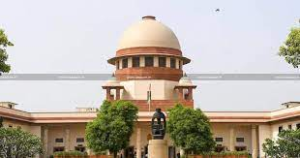Brownies is a baked confection which is most consumed by everyone, Guava is rich in vitamins and...
The political situation in Myanmar has always been characterized by a state of anarchy and political takeover...
On December 29, 2023, South Africa accused Israel of doing something really bad in Gaza, calling it...
Close to eight decades, but still, the Israel-Palestine conflict has never been out of the news. With...
This research explores the function of copyright in protecting authentic works, with a focus on
the Indian fashion...
A STUDY ON HATE CRIME: HOW PREJUDICE MOTIVATES VIOLENCE.
Indian Archaeological study through a Legal Lens: Inquiry on the Legal perspectives with Special Emphasis on Heritage...
An Earthquake is a sudden shaking of the earth's surface due to the Seismic waves which are...
On November 6th, a Monday, the Supreme Court of India expressed its deep concern over
the recurring issue...
The recent decision by the Bombay High Court on Section 9 of the Arbitration and Conciliation Act...






















